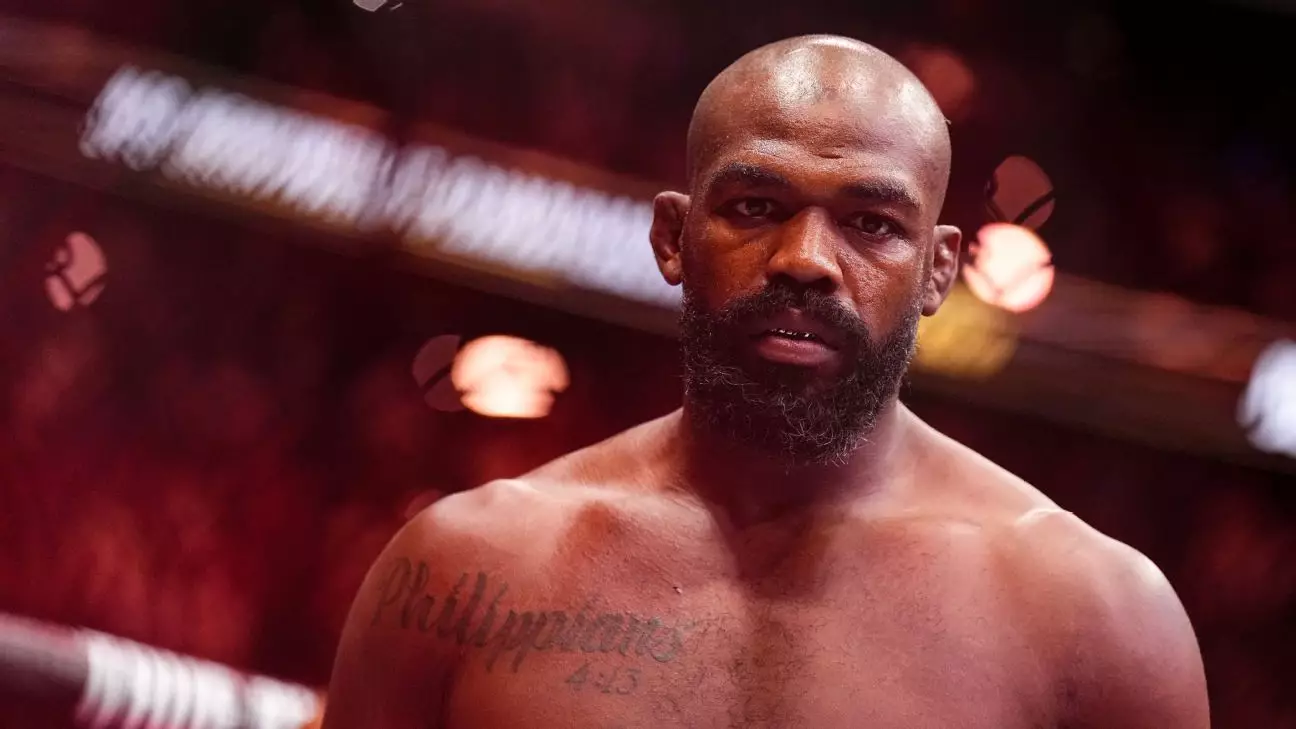In the thrilling yet unpredictable realm of mixed martial arts (MMA), few moments hit as hard as the news of Jon Jones’ retirement announced by UFC CEO Dana White during a post-fight conference in Baku, Azerbaijan. In an industry that revels in spectacle and shock, this announcement felt surprisingly subdued, almost like the anticlimactic denouement of a grand saga. White’s demeanor suggested disappointment—not in the man himself but in the mercurial nature of Jones, a fighter whose choices often overshadow his monumental accomplishments. As one of the most celebrated and controversial figures in MMA, Jones’ departure begs the question: Is this truly the end of an era, or merely a strategic retreat?
While one might expect a grand spectacle fitting for a fighter of such high stature, the reality is starkly different. The nuance of Jones’ retirement is layered and steeped in the complex relationship between the athlete, the organization, and fans. Jones has always operated on his own terms, and this development is no departure from that behavior.
Selfishness: A Double-Edged Sword
The term “selfish” may seem pejorative, yet in the world of elite sports, it often delineates the line between mediocrity and greatness. Jones has carved out a reputation as perhaps the most self-serving fighter in UFC history. His career, while glittering with accolades, reflects a pattern of decisions that prioritize his needs over those of his opponents, the organization, and the enthusiastic masses that fill arenas to see him fight. This selfishness worked well—at least in terms of his professional career—allowing him to build an empire that few can rival.
His unwillingness to engage in anticipated bouts, like the heavyweight title unification fight against Tom Aspinall, underscores this trait. Instead, he opted for a legacy-defining clash against the aged Stipe Miocic, which serves more to inflate his ego than advance athletic competitiveness. One has to wonder if the allure of fighting an aging champion was simply a tactic to further cement his legacy rather than provide fans with the bouts they crave. In doing so, Jones has avoided putting himself in situations that could threaten his undefeated status, although the gap between his active fighting and legend-building has been noted by ardent supporters seeking a more vibrant exhibition of skill.
Jones’ Legacy: Maneuvering Through Controversy
Jones’ journey has not been without pitfalls. From felony charges to hit-and-run incidents, his career replete with legal troubles has seemingly been cushioned by the unwavering support of the UFC. Unlike any other fighter, excluding perhaps Conor McGregor, the organization has consistently opted to stand by him, even amidst his most troubling missteps. This raises ethical questions surrounding the responsibilities organizations owe to their athletes and the multitude of lives intertwined in the process, including other fighters who rely on its stability.
Exemplifying this tension, shaky relationships formed due to selfish choices highlighted his history of breaking bonds, such as the fallout with Rashad Evans after Jones leapt ahead of him in the fight hierarchy. The stated camaraderie was soon overshadowed by personal agendas, fracturing relationships that had once been deemed unbreakable. Similar occurrences paint a picture of a fighter who, for all his undeniable skill, often prioritizes his needs over loyalty.
The Fight That Never Was: A Missed Opportunity?
One particularly glaring example of Jones’ self-centered tendencies lies in his decision to forfeit the well-publicized showdown with Chael Sonnen, contributing to the cancellation of UFC 151—the first time a major pay-per-view event fell through. The domino effect of his decision impacted not just his career trajectory but affected the livelihoods of numerous fighters poised to compete, illustrating how his choices extend beyond the personal into a public sphere fraught with consequences. Critics often point to these events as reflections of a mindset that can’t help but prioritize control over solidarity, a practice that stands in stark contrast to the camaraderie that typically defines an athlete’s journey in the sport.
And now, with the retirement chair occupied by Jones, speculation abounds over opportunities lost—for Aspinall, the UFC, and fans alike. The absence of a bout with Ngannou—longed for by many—looms large as discussions turn toward legacy. With Jones asking for what some might see as excessive sums to set foot in the octagon, it raises ethical considerations around market value and whether one man can monopolize a spotlight to the detriment of the sport itself.
Whether his retirement persists as an unyielding choice or simply a tactic remains uncertain. The MMA landscape is notorious for its unpredictability, and one thing is clear: Jon Jones remains a polarizing figure—neither purely villain nor hero. As he decides when or even if he will return, his leverage is palpable. Ultimately, it’s a game of chess where the stakes are not just titles but the narrative of a career—one shaped more by personal egos than team alliances. What’s undebatable, however, is how Jones’ legacy will linger—disruptive, powerful, and always on his terms.


Leave a Reply